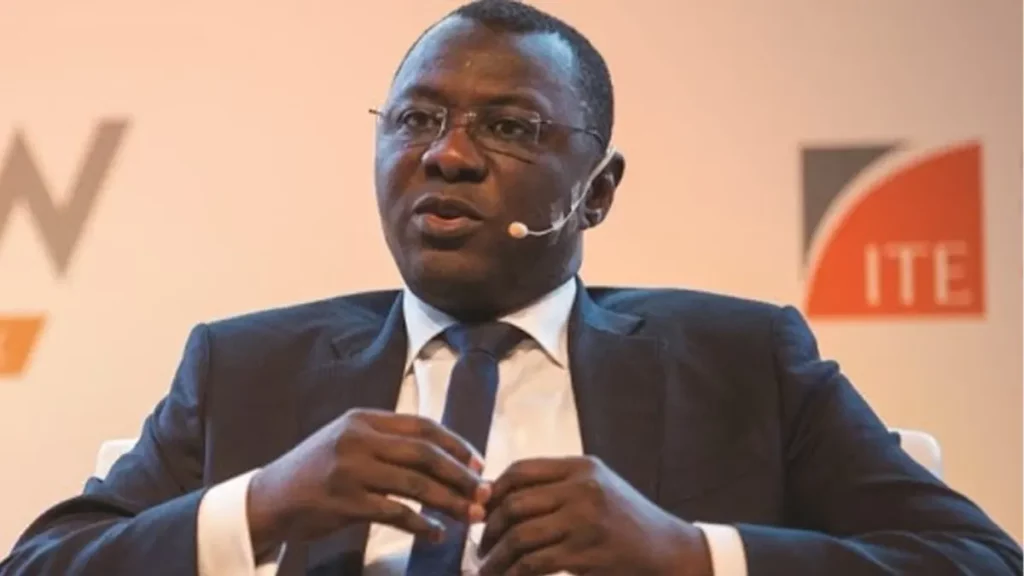ARTICLE AD
Ghana stands to lose a total of $3.8 billion in the next five to six years from its development partners following the passage of the Proper Human Sexual Rights and Ghanaian Family Values (Anti-LGBTQ) law.
Consequently, the Finance Ministry has asked the government to begin an effective engagement with conservative countries, including the Arab countries and China to help trigger resources to fill in the potential financing gaps to be created through the withdrawal of financial support from the country’s development partners.
 Dr. Mohammed Amin Adam, Finance Minister.webp
Dr. Mohammed Amin Adam, Finance Minister.webp
Parliament on 28th of February, 2024, Parliament passed the Proper Human Sexual Rights and Ghanaian Family Values (“Anti-LGBTQ”) Bill, which is yet to be forwarded to the President, Nana Addo Dankwa Akufo-Addo for his assent.
A brief by the Finance Ministry on the assessment of the impact of the passage of the Anti-LGBTQ law on the Ghanaian economy intercepted by the Ghanaian Times said the government should begin a structured engagement with local conservative forces such as religious bodies and faith-based organisations to communicate the economic implications of the passage of the “Anti LGBTQ” law and to build a stronger coalition and a framework for supporting key development initiatives that are likely to be affected.
“The President may have to defer assenting to the Bill until the court rules on the legal issues tabled by key national stakeholders (civil society organisations and Commission on Human Rights and Administrative Justice) the brief by the Finance Ministry titled “Passage of the Proper Human Sexual Rights and Ghanaian Family Values: Brief on the Immediate Impact on the Implementation of the 2024 Budget,” intercepted by the Ghanaian Times stated.
It said the expected $300 million financing from the First Ghana Resilient Recovery, Development Policy Operation (Budget Support) which was currently pending Parliamentary approval might not be disbursed by the Bank when it was approved by Parliament, on-going negotiations on the Second Ghana Resilient Recovery Development Policy, Operation (Budget Support) amounting to $300 million might be suspended.
It added that the on-going negotiations for $250 million to support the Ghana Financial Stability Fund might be suspended, disbursement of undisbursed amounts totalling $2.1 billion for on-going projects would be suspended, preparation of pipeline projects and declaration of effectiveness for two projects worth $900million might be suspended.
“For 2024 Ghana will lose $600 million budget support and $250 million for the Financial Stability Fund. This will negatively impact on Ghana’s foreign exchange reserves and exchange rate stability as these inflows are expected to shore the country’s reserve position,” the brief said.
It said the potential loss of those financial resources would create a financing gap in the 2024 budget that must be addressed either through a significant reduction in the expenditures or additional domestic revenue mobilisation.
Touching on the impact on of the passage of the law on the debt restructuring programme, it said the negotiations with the Official Creditor Committee (OCC) and Eurobond holders under Ghana’s debt restructuring programme was predicated on the success of the IMF programme, saying that “A derailed IMF programme will have dire consequences on the debt restructuring exercise and Ghana’s long term debt sustainability.”
The brief said the Ministry of Finance would continue to engage with the IMF on the alternative credible sources of funding that would plug the financing gap, GRA to embark on a vigorous revenue mobilisation drive focusing on implementation of approved measures as well as compliance, consider possible expenditure rationalisation to accommodate the shock from the potential withdrawal of resources, and leverage on the Ghana Beyond Aid Principles and change the structure of the country’s s resource mobilisation
BY KINGSLEY ASARE

 8 months ago
63
8 months ago
63 

